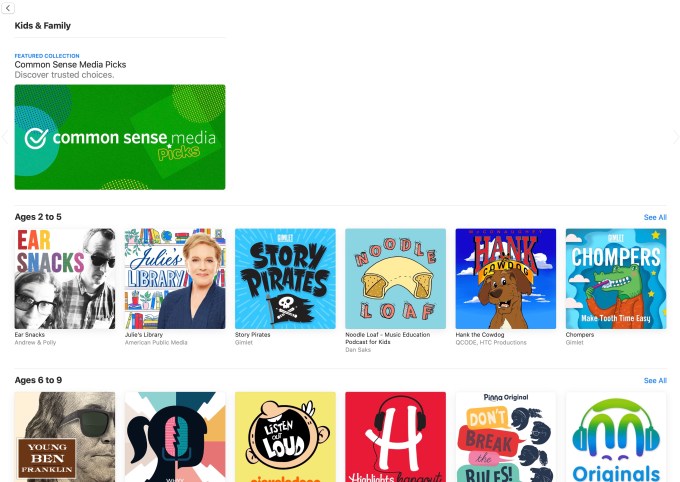It’s been over a year since Google begun auctioning slots for a search engine ‘choice’ screen on Android in Europe, following a major antitrust intervention by the European Commission back in 2018. But despite hitting Google with a record-breaking fine over two years ago almost nothing has changed.
The tech giant’s search marketshare remains undented and the most interesting regional search alternatives are being priced out of a Google-devised ‘remedy’ that favors those who can pay the most to be listed as an alternative to its own dominant search engine on smartphones running Google’s Android OS.
Quarterly choice screen winners have been getting increasingly same-y. Alternatives to Google are expecting another uninspiring batch of ‘winners’ to drop in short order.
The results for Q1 2021 were dominated by a bunch of ad-targeting search options few smartphone users would likely have heard of: Germany’s GMX; California-based info.com; and Puerto Rico-based PrivacyWall (which is owned by a company whose website is emblazoned with the slogan “100% programmatic advertising”) — plus another, more familiar (ad)tech giant’s search engine (Microsoft-owned) Bing.
Lower down the list: The Russian ‘Google’ — Yandex — which won eight slots. And a veteran player in the Czech search market, Seznam.cz, which bagged two.
On the ‘big loser’ side: Non-tracking search engine, DuckDuckGo — which has been standing up for online privacy for over a decade yet won only one slot (in Belgium). It’s been come to be almost entirely squeezed out vs winning a universal slot in all markets at the start of the auction process.
Tree-planting not-for-profit search engine, Ecosia, was almost entirely absent in the last round too: Gaining only one slot on the screen showed to Android users in Slovenia. Yet back in December Ecosia was added as a default search option with Safari on iOS, iPadOS and macOS — having grown its global usage to more than 15 million users.
While another homegrown European search option — which has a privacy-focus — France’s Qwant, went home with just one slot. And not in its home market, either (in tiny Luxembourg).
If Europe’s regulators had fondly imagined that a Google-devised ‘remedy’ for major antitrust breaches they identified would automagically restore thriving competition to the Android search market they should feel rudely awakened indeed. The bald fact is Google’s marketshare has not even been scratched, let alone dented.
Statista data for Google’s search market share on mobile (across both Android and iOS; the latter where the tech giant pays Apple billions of dollars annually to be set as the default on iPhones) shows that in February 2021 its share in Europe stood at 97.07% — up from 96.92% in July 2018 when the Commission made the antitrust ruling.
Yes, Google has actually gained share running this ‘remedy’.
By any measure that’s a spectacular failure for EU competition enforcement — more than 2.5 years after its headline grabbing antitrust decision against Android.
The Commission has also been promoting a goal of European tech sovereignty throughout the period Google has been running this auction. President Ursula von der Leyen links this overrarching goal to her digital policy programming.
On the measure of tech sovereignty the Android choice screen must be seen as a sizeable failure too — as it’s not only failed to support (most) homegrown alternatives to Google (another, Cliqz, pulled the plug on its search+browser effort entirely last year, putting part of the blame on the region’s political stakeholders for failing to understand the need for Europe to own its own digital infrastructure) — but it’s actively burying the most interesting European alternatives by forcing them to compete against a bunch of ad-funded Google clones.
(And if Brave Search takes off it’ll be another non-European alternative — albeit, one that will have benefitted from expertise and tech that was made-in-Europe… )
This is because the auction mechanism means only companies that pay Google the most can buy themselves a chance at being set as a default option on Android.
Even in the rare instances where European players shell out enough money to appear in the choice list (which likely means they’ll be losing money per search click) they most often do so alongside other non-European alternatives and Google — further raising the competitive bar for selection.
It doesn’t have to be this way. Nor was it wasn’t initially; Google started with a choice screen based on marketshare.
However it very quickly switched to a pay to play model — throttling at a stroke the discoverability of alternative business models that aren’t based on exploiting user data (or, indeed, aren’t profit-driven in Ecosia’s case; as it uses ad-generated revenue to fund tree planting with a purely environmental goal).
Such alternatives say they typically can’t afford to win Google’s choice screen auctions. (It’s worth noting that those who do participate in the game are restricted in what they can say as Google requires they sign an NDA.)
Clearly, it’s no coincidence that the winners of Google’s auction skew almost entirely to the track and target side of the tracks, where its own business sits; all data-exploiting business models bandied together.
And then, from a consumer point of view, why would you not pick Google with such a poorly and artificially limited ‘choice’ on offer — since you’re generally only being offered weaker versions of the same thing?
Ecosia tells TechCrunch it’s now considering pulling out of the auction process altogether — which would be a return to its first instinct; which was to boycott the auction before saying it felt it had to participate. A few months playing Google’s pay-to-play ‘no choice’ (as Ecosia dubs the auction) game has cemented its view that the system is stacked against genuine alternatives.
Over two auction rounds when Ecosia has only ended up winning the one slot each time it says it’s seen no positive effect on user numbers. A decision on whether or not to withdraw entirely will be taken after the results of the next auction process are revealed, it said. (The next round of results are expected shortly, in early March.)
“We definitely realized it’s less and less ‘fun’ to play the game,” Ecosia founder Christian Kroll told us. “It’s a super unfair game — where it’s not only ‘David against Goliath’ but also Goliath gets to choose the rules, gets a free ticket, he can change the rules of game if he likes to. So it’s not amusing for us to participate in that.
“We’ve been participating now for nine months and if you look at overall marketshare in Europe nothing has changed. We don’t know the results yet of this round but I assume also nothing will change — the usual suspects will be there again… Most of the options that you see there now are not interesting to users.”
“Calling it a ‘choice’ screen is still a little bit ironic if you remove all the interesting choices from the screen. So the situation is still the same and it becomes less and less fun to play the game and at some point I think we might make the decision that we’re not going to be part of the game anymore,” he added.
Other alternative search engines we spoke to are continuing to participate for now — but all were critical of Google’s ‘pay-to-play’ model for the Android ‘choice screen’.
DuckDuckGo founder, Gabriel Weinberg, told us: “We are bidding, but only to help further expose to the European Commission how flawed Google’s rigged process really is, in hopes they will help more actively take a role in reforming it into something that actually works for consumers. Due to our strict privacy policy, we expect to be eliminated, same as last time.”
He pointed to a blog post the company put out last fall, denouncing the “fundamentally flawed” auction model — and saying that “whole piece still stands”. In the blog post the company wrote that despite being profitable since 2014 “we have been priced out of this auction because we choose to not maximize our profits by exploiting our users”.
“In practical terms, this means our commitment to privacy and a cleaner search experience translates into less money per search. This means we must bid less relative to other, profit-maximizing companies,” DuckDuckGo went on, adding: “This EU antitrust remedy is only serving to further strengthen Google’s dominance in mobile search by boxing out alternative search engines that consumers want to use and, for those search engines that remain, taking most of their profits from the preference menu.”
“This auction format incentivizes bidders to bid what they can expect to profit per user selection. The long-term result is that the participating Google alternatives must give most of their preference menu profits to Google! Google’s auction further incentivizes search engines to be worse on privacy, to increase ads, and to not donate to good causes, because, if they do those things, then they could afford to bid higher,” it also said then.
France’s Qwant has been similarly critical and it told us it is “extremely dissatisfied” with the auction — calling for “urgent modification” and saying the 2018 Commissio decision should be fully respected “in text and in spirit”.
“We are extremely dissatisfied with the auction system. We are asking for an urgent modification of the Choice Screen to allow consumers to find the search engine they want to use and not just the three choices that are only the ones that pay the most Google. We demand full respect for the 2018 decision, in text and in spirit,” said CEO Jean-Claude Ghinozzi.
“We are reviewing all options and re-evaluating our decision on a quarterly basis. In any case, we want consumers to be able to freely choose the search engine they prefer, without being limited to the only three alternative choices sold by Google. Consumers’ interests must always come first,” he added.
Russia’s Yandex confirmed it has participated in the upcoming Q2 auction. But it was also critical of Google’s implementation, saying it falls short of offering a genuine “freedom of choice” to Android users.
“We aim to offer high-quality and convenient search engine around the world. We are confident that freedom to select a search engine will lead to greater market competition and motivate each player to improve services. We don’t think that the current EU solution fully ensures freedom of choice for users, by only covering devices released from March 2020,” a Yandex spokeswoman said.
“There are currently very few such devices on the EU market in comparison with the total number of devices in users’ hands. It is essential to provide the freedom of choice that is genuine and real. Competition among service providers ultimately benefits users who will receive a better product.”
One newcomer to the search space — the anti-tracking browser Brave (which, as we mentioned above, just bought up some Cliqz assets to underpin the forthcoming launch of an-own brand Brave Search) — confirmed it will not be joining in at all.
“Brave does not plan to participate in this auction. Brave is about putting the user first, and this bidding process ignores users’ best interests by limiting their choices and selecting only for highest Google Play Store optimizing bidders,” a spokeswoman said.
“An irony here is that Google gets to profit off its own remedy for being found guilty of anti-competitive tying of Chrome into Android,” she added.
Asked about its strategy to grow usage of Brave Search in the region — outside of participation in the Android choice screen — she said: “Brave already has localized browsers for the European market, and we will continue to grow by offering best-in-class privacy showcased in marketing campaigns and referrals programs.”
Google’s self-devised ‘remedy’ followed a 2018 antitrust decision by the Commission — which led to a record-breaking $5BN penalty and an order to cease a variety of infringing behaviors. The tech giant’s implementation remains under active monitoring by EU antitrust regulators. However Kroll argues the Commission is essentially just letting Google buy time rather than fix the abusive behavior it identified.
“The way I see this at the moment is the Commission feels like the auction screen isn’t necessarily something that they’ve requested as a remedy so they can’t really force Google to change it — and that’s why they also maybe don’t see it as their responsibility,” he said. “But at the same time they requested Google to solve the situation and Google isn’t doing anything.
“I think they are also allowing Google to get the credit from the press and also from users that it seems like Google is doing something — so they are allowing Google to play on time… I don’t know if a real choice screen would be a good solution but it’s also not for me to decide — it’s up to the European Commission to decide if Google has successfully remedied the damage… and has also compensated some of the damage that it’s done and I think that has not happened at all. We can see that in the [marketshare] numbers that basically still the same situation is happening.”
“The whole thing is designed to remove interesting options from the screen,” he also argued of Google’s current ‘remedy’. “This is how it’s ‘working’ and I’m of course disappointed that nobody is stepping in there. So we’re basically in this unfair game where we get beaten up by our competitors. And I would hope for some regulator to step in and say this is not how this should go. But this isn’t happening.
“At the moment our only choice is to hang in there but at the moment if we really see there is no effect and there’s also no chance that regulators will ever step in we still have the choice to completely withdraw and let Google have its fun but without us… We’re not only not getting anything out of the [current auction model] but we’re of course also investing into it. And there are also restrictions because of the NDA we’ve signed — and even those restrictions are a little bit of a pain. So we have all the negative effects and don’t get any benefits.”
While limited by NDA in what he can discuss about the costs involved with participating in the auction, Kroll suggested the winners are doing so at a loss — pursuing reach at the expense of revenue.
“If you look at the bids from the last rounds I think with those bids it would be difficult for us to make money — and so potentially others have lost money. And that’s exactly also how this auction is designed, or how most auctions are designed, is that the winners often lose money… so you have this winner’s curse where people overbid,” he said.
“This hasn’t happened to us — also because we’re super careful — and in the last round we won this wonderful slot in Slovenia. Which is a beautiful country but again it has no impact on our revenues and we didn’t expect that to happen. It’s just for us to basically participate in the game but not risk our financial health,” he added. “We know that our bids will likely not win so the financial risk [to Ecosia as it’s currently participating and mostly losing in the auction] is not that big but for the companies who actually win bids — for them it might be a different thing.”
Kroll points out that the auction model has allowed Google to continue harvesting marketshare while weakening its competitors.
“There are quite a few companies who can afford to lose money in search because they just need to build up marketshare — and Google is basically harvesting all that and at the same time weakening its competitors,” he argued. “Because competitors need to spend on this. And one element that — at least in the beginning when the auction started — that I didn’t even see was also that if you’re a real search company… then you’re building up a brand, you’re building up a product, you’re making all these investments and you have real users — and if you have those then, if there was really a choice screen, people would naturally choose you. But in this auction screen model you’re basically paying for users that you would have anyway.
“So it’s really putting those kind of companies at a disadvantage: DuckDuckGo, us, all kinds of companies who have a ‘real USP’. Also Lilo, potentially even Qwant as well if you have a more nationalist approach to search, basically. So all of those companies are put at an even bigger disadvantage. And that’s — I think — unfair.”
Since most winners of auction slots are, like Google, involved in surveillance capitalism — gathering data on search users to profit off of ad targeting — if anyone was banking on EU competition enforcement being able to act as a lever to crack open the dominant privacy-hostile business model of the web (and allow less abusive alternatives get a foot in the door) they must be sorely disappointed.
Better alternatives — that do not track consumers for ads; or, in the case of Ecosia, are on an entirely non-profit mission — are clearly being squeezed out.
The Commission can’t say it wasn’t warned: The moment the auction model was announced by Google rivals decried it as flawed, rigged, unfair and unsustainable — warning it would put them at a competitive disadvantage (exactly because they aren’t just cloning Google’s ‘track and target for ad profit model’).
Nonetheless, it has so far shown itself unwilling or unable to respond — despite making a big show of proposing major new rules for the largest platforms which it says are needed to ensure they play fair. But that raises the question of why it’s not better enforcing existing rules?
When we raised criticism of Google’s Android choice screen auction model with the Commission it sent us its standard set of talking points — writing that: “We have seen in the past that a choice screen can be an effective way to promote user choice”.
“The choice screen means that additional search providers are presented to users on start-up of every new Android device in every EEA country. So users can now choose their search provider of preference when setting up their newly purchased Android devices,” it also said, adding that it is “committed to a full and effective implementation of the decision”.
“We are therefore monitoring closely the implementation of the choice screen mechanism,” it added — a standard line since Google begin its ‘compliance’ with the 2018 EU decision.
In a slight development, the Commission did also confirm it has had discussions with Google about the choice screen mechanism — following what it described as “relevant feedback from the market”.
It said these discussions focused on “the presentation and mechanics of the choice screen and to the selection mechanism of rival search providers”.
But with the clock ticking, and genuine alternatives to Google search being actively squeezed out of the market — leaving European consumers offered no meaningful choice to privacy-hostile search on Android — you do have to wonder what regulators are waiting for?
A pattern of reluctance to challenge tech giants where it counts seems to be emerging from Margrethe Vestager’s tenure at the helm of the competition department (and also, since 2019, a key shaper of EU digital policy).
Despite gaining a reputation for being willing to take on tech giants — and hitting Google (and others) with a number of headline-grabbing fines over the past five+ years — she cannot claim success in rebalancing the market for mobile search nor smartphone operating systems nor search ad brokering, in just the most recent Google cases.
Nonetheless she was content to green light Google’s acquisition of wearable maker Fitbit at the end of last year — despite a multitude of voices raised against allowing the tech giant to further entrench its dominance.
On that she argued defensively that concessions secured from Google would be sufficient to address concerns (such as a promise extracted from Google not to use Fitbit data for ads for at least ten years).
But, given her record on monitoring Google’s compliance with a whole flush of EU antitrust rulings, it’s hard to see why anyone other than Google should be confident in the Commission’s ability or willingness to enforce its own mandates against Google. Complaints against how Google operates, meanwhile, just keep stacking up.
“I think they are listening,” says Kroll of the Commission. “But what I am missing is action.”


 , Alexa will share financial planning best practices so founders can remove this layer of stress from the pressure of building a business.
, Alexa will share financial planning best practices so founders can remove this layer of stress from the pressure of building a business.




